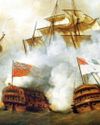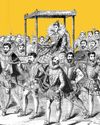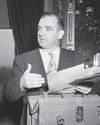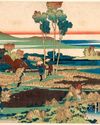
In 16th century Europe, men of science had started trying to piece together the workings of the universe based on the works of those who had gone before and their own new pioneering theories. Tycho Brahe, an astronomer and nobleman at the court of King Frederick II, was a passionate pupil of the sky and, with his own eyes, forged theories on the workings of the universe. Never one to conform to what was expected of him, Brahe lived a remarkable life and left a lasting legacy in the study of the skies.
Born into a wealthy and prominent Danish noble family in 1546, Tycho Brahe was raised by his childless aunt and uncle, away from his immediate family, as his uncle's sole heir. Tycho was steered by his uncle towards a different kind of aristocratic role, that of the well-educated nobleman who might serve his monarch as a diplomat, advisor, and administrator,” says Adam Mosley, an associate professor of history at Swansea University. Rather than be apprenticed to a page at court, like many young noblemen at the time were, Brahe attended university in Copenhagen where, upon his uncle's advice, he studied arts subjects with the intention of becoming a lawyer. However, the legal life was not to be for young Brahe, who soon found his attention drifting in another direction.
This story is from the Issue 131 edition of All About History UK.
Start your 7-day Magzter GOLD free trial to access thousands of curated premium stories, and 9,000+ magazines and newspapers.
Already a subscriber ? Sign In
This story is from the Issue 131 edition of All About History UK.
Start your 7-day Magzter GOLD free trial to access thousands of curated premium stories, and 9,000+ magazines and newspapers.
Already a subscriber? Sign In

STALIN HAD CONTINUED WEST AFTER BERLIN?
Having used the Allies for his own ends, the Soviet dictator plots to overthrow the rest of Europe

THE GLORIOUS FIRST OF JUNE
ATLANTIC OCEAN, 400 NAUTICAL MILES WEST OF USHANT 28 MAY - 1 JUNE 1794

LIFE AS AS A GODDESS
Jasmine Elmer uncovers the complexity and darker sides of ancient deities and delivers history with soul

TUDOR FASHION TIPS
From farthingales and ruffs to codpieces, ten ways to achieve the styles of the Tudor court

THE FIRST AMERICANS
Discover indigenous life before the colonists landed

THE LAVENDER SCARE
How a national fear of communism led to the American government outing and firing thousands of gay and lesbian workers

STARS BEHIND THE BARS
Ten iconic celebrity mugshots and the stories behind them

The Making of JAPAN
The rise of imperial power and a flourishing of the arts and culture in the Land of the Rising Sun can be traced back to the Asuka period

SIEGE OF TOULON
TOULON, FRENCH REPUBLIC SEPTEMBER-DECEMBER 1793

REDISCOVERING THE FORGOTTEN LIVES OF QUEER MEN
We speak to the editor of a groundbreaking new collection that uncovers what life was like for gay men when homosexuality was illegal in Britain